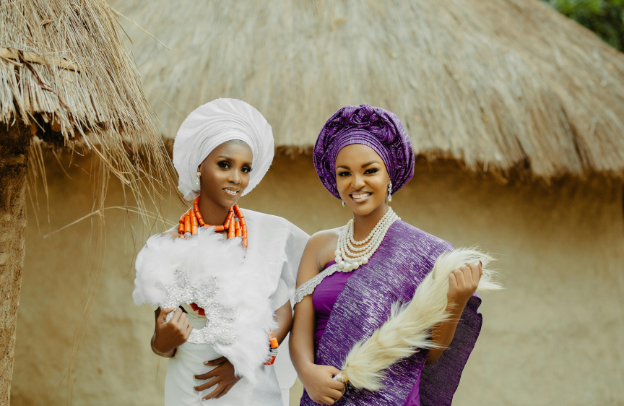Building Cultural Understanding: How African Diasporans Can Participate in Africa’s Rich Traditions

Across cities like Accra, Dakar, Lagos, and Addis Ababa, members of the African diaspora are returning not as tourists, but as seekers. They are coming to reconnect with the roots that history tried to sever, to rebuild what was lost or taken. This journey is more than a visit; it’s a powerful act of healing.
Learn How to Leverage Your Story through our Story To Asset Framework.
By actively participating in Africa’s rich cultural traditions through music, food, storytelling, and community, they are not just observing; they are becoming part of something deeper. This cultural exchange is helping bridge generations and continents, creating space for understanding, identity, and unity to grow.
A Return Beyond Ancestry
The desire to reconnect with Africa’s cultural roots has grown stronger in recent years. According to the African Union, the African diaspora, estimated at over 200 million globally, is increasingly seen as a “sixth region” of Africa, a strategic and spiritual part of the continent’s future.
While DNA testing has helped many diasporans trace lineage to specific ethnic groups and regions, the cultural dimension of identity cannot be fully accessed through genetics alone. Real understanding comes through lived experience, through listening, dancing, cooking, praying, and participating.
One compelling example of this cultural reconnection is Ghana’s “Year of Return” in 2019, which welcomed diasporans from across the globe to explore their ancestral roots through festivals, ceremonies, and heritage site visits.
More than one million visitors arrived, generating an estimated $1.9 billion in revenue, but perhaps more importantly, fostering deeper cultural exchange and understanding.
Participating, Not Consuming: The Shift in Perspective
Historically, travel in Africa has often followed a colonial gaze, exoticizing culture rather than engaging with it. But cultural travel rooted in respect, humility, and collaboration flips that narrative.
Diasporans are not mere spectators; they are returning family members. And African traditions, be they in music, spirituality, fashion, or food, are not commodities to be bought and displayed but lived experiences to be shared.
You might also like Olojo Festival Journey: 7 Days of Yoruba Heritage & Spiritual Renewal in Ile-Ife, Nigeria
This approach aligns with the African philosophy of Ubuntu, a Nguni Bantu term meaning “I am because we are.” Ubuntu emphasizes interconnectedness and community, making it a powerful guiding principle for diaspora participation in African traditions.
When a diaspora visitor joins a drumming circle in Senegal or participates in a traditional naming ceremony in Nigeria, they’re not just learning—they’re being woven into a living cultural fabric.
Organizations like Birthright AFRICA or AClasses Academy, through their Diaspora Tourism Experience (DTE), are operationalizing this ethos by offering immersive travel experiences where diasporans engage directly with communities through workshops, storytelling sessions, and artistic collaborations.
These moments of shared learning and creation create deeper bonds than sightseeing ever could.
Cultural Practices as Doorways to Understanding
Africa’s traditions are remarkably diverse, ranging from the ancient spiritual practices of the Dogon in Mali to the masquerade festivals of the Igbo in Nigeria and the beadwork rituals of the Maasai in Kenya. Participating in these practices opens up new layers of understanding about values, history, and modes of living that are often erased or misunderstood in Western contexts.
For instance, engaging in a traditional libation ceremony, common across West Africa, introduces diasporans to ancestral veneration, a worldview where time is circular and the dead continue to play a role in the affairs of the living.
Learning these rituals firsthand demystifies African spirituality and reaffirms the sacred connections that colonial narratives once attempted to sever.
Similarly, culinary traditions offer insights into cultural resilience and adaptation. In Ethiopia, the coffee ceremony is not simply about drinking a beverage; it’s a social and spiritual ritual that brings families and communities together.
In Morocco, learning to prepare couscous or tagine with local women unveils stories of trade, family, and seasonal cycles. Through food, diasporans taste history, survival, and continuity.
Collaboration Through Traditional Arts
One of the most vibrant areas of cultural participation is the arts. Music, dance, and visual expression are central to African life, and they offer an accessible bridge for diaspora involvement.
Festivals like FESPACO (Pan-African Film and Television Festival of Ouagadougou) in Burkina Faso, Lake of Stars in Malawi, and Dak’Art in Senegal provide platforms where diasporan and African creatives collaborate and share stories across continents.
See also The Role of African Festivals in Strengthening Diaspora Connections to Africa
These collaborations echo the African value of Sankofa, an Akan principle meaning “go back and fetch it.” Sankofa emphasizes that progress is only possible when we recover and honor what was left behind. By engaging in traditional music workshops, fashion design collectives, or storytelling circles, diasporans are retrieving lost fragments of culture and making them whole again.
Notable examples include Afro-diasporan musicians like Blitz Bazawule and Akon, who blend traditional African sounds with diasporic genres like hip hop and R&B. Their work transcends performance—it becomes cultural restoration.
Local Communities as Cultural Custodians
Authentic cultural participation must be rooted in relationships with local custodians of tradition, elders, artisans, priests, griots, and community leaders. These individuals carry ancestral knowledge and serve as bridges between the past and present. Diasporans who engage with them in respectful, collaborative ways benefit from learning traditions in their intended contexts.
Importantly, this collaboration must center African agencies. Diasporans must avoid replicating colonial patterns of dominance or entitlement. As many cultural experts emphasize, participation should be guided by consent, context, and contribution.
Toward Long-Term Connection and Responsibility
Participating in African traditions is not just about what is gained, but what is given. Many diaspora travelers, after initial cultural immersion, take on roles as advocates, funders, or partners for local communities.
Some launch scholarships for traditional art apprenticeships, while others collaborate on heritage preservation projects or document oral histories under threat of extinction.
See also Helping Diasporans Discover New Collaborative Business Opportunities through Group Tours
This long-term engagement reflects the African principle of Ujamaa, or cooperative economics and familyhood. Ujamaa teaches that communities thrive when resources, knowledge, wealth, and care are shared collectively.
Diasporans who engage meaningfully often return home not only with memories but with missions.
Conclusion: Tradition as a Living Bond
For African diasporans, reconnecting with tradition is not a nostalgic exercise. It is a forward-facing journey, one that bridges the personal with the communal, the historical with the contemporary. Participating in Africa’s rich traditions allows diasporans to anchor their identities in something more than myth or pain. It allows for healing, humility, and solidarity.
In a world grappling with cultural amnesia and racial disconnection, this kind of deep, participatory understanding offers hope. It proves that tradition is not static; it evolves, expands, and welcomes those ready to listen, learn, and contribute.
By stepping into ceremonies, kitchens, festivals, and conversations, African diasporans are not just reclaiming a birthright; they are actively shaping the future of Pan-African unity. And in doing so, they remind us that tradition, when honored and shared, becomes the most enduring bridge between continents, generations, and dreams.
Learn How to Leverage Your Story through our Story To Asset Framework.





